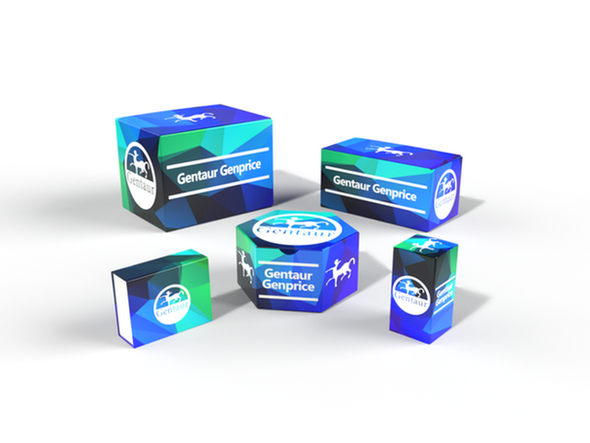Description
STYK1 Antibody | 63-173 | Gentaur UK, US & Europe Distribution
Host: Rabbit
Reactivity: Human, Mouse
Homology: N/A
Immunogen: This STYK1 antibody is generated from rabbits immunized with a KLH conjugated synthetic peptide between 31-64 amino acids from the N-terminal region of human STYK1.
Research Area: Cancer, Signal Transduction
Tested Application: WB
Application: For WB starting dilution is: 1:1000
Specificiy: N/A
Positive Control 1: N/A
Positive Control 2: N/A
Positive Control 3: N/A
Positive Control 4: N/A
Positive Control 5: N/A
Positive Control 6: N/A
Molecular Weight: 48 kDa
Validation: N/A
Isoform: N/A
Purification: This antibody is prepared by Saturated Ammonium Sulfate (SAS) precipitation followed by dialysis
Clonality: Polyclonal
Clone: N/A
Isotype: Rabbit Ig
Conjugate: Unconjugated
Physical State: Liquid
Buffer: Supplied in PBS with 0.09% (W/V) sodium azide.
Concentration: batch dependent
Storage Condition: Store at 4˚C for three months and -20˚C, stable for up to one year. As with all antibodies care should be taken to avoid repeated freeze thaw cycles. Antibodies should not be exposed to prolonged high temperatures.
Alternate Name: Tyrosine-protein kinase STYK1, Novel oncogene with kinase domain, Protein PK-unique, Serine/threonine/tyrosine kinase 1, STYK1, NOK
User Note: Optimal dilutions for each application to be determined by the researcher.
BACKGROUND: STYK1, a probable tyrosine protein-kinase, which has strong transforming capabilities on a variety of cell lines. When overexpressed, it can also induce tumor cell invasion as well as metastasis in distant organs. May act by activating both MAP kinase and phosphatidylinositol 3'-kinases (PI3K) pathways. It is widely expressed; highly expressed in brain, placenta and prostate. STYK1 is expressed in tumor cells such as hepatoma cells LO2, cervix carcinoma cells HeLa, ovary cancer cells Ho8910 and chronic myelogenous leukemia cells K562, but not in other tumor cells such as epidermoid carcinoma.






